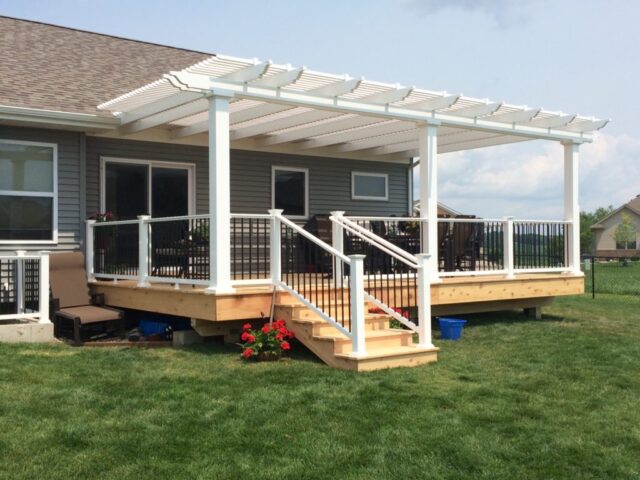
As outdoor living has continued to be a major trend in home improvement, the pergola has experienced a significant increase in popularity in recent years. The pergola, of course, has a long history (perhaps extending back to Ancient Egypt!), but it’s also one that’s frequently mistaken for other, related buildings.
One of the most popular landscaping trends right now is pergolas, which can be seen everywhere from rooftops to city parks. More urban landscape architects and developers are starting to incorporate pergolas into their designs. Wood may be used to construct pergolas for small gardens or domestic designs, but it is insufficient for commercial purposes. Because of this, aluminum is a superior material for pergolas of various shapes, sizes, and locations.
You might regret your choice to build a pergola for your outdoor area in the future. Before choosing a pergola, it is advisable to determine all of the advantages and disadvantages of wood, vinyl, and aluminum pergolas.
The care and upkeep required, the material’s potential longevity over time in relation to the initial cost, and the overall design, advantages, and appearance of the product are the important aspects to take into account when evaluating pergola materials.
Pergolas were historically made of wood, but today they come in a wide range of various materials, including plastic. When used on other components of a structure, like siding or fencing, vinyl has a rich history of being a less-maintenance option than wood. For homeowners who seek ease, style, and long-term low maintenance for their pergola, vinyl is a good alternative.
Wood Pergolas
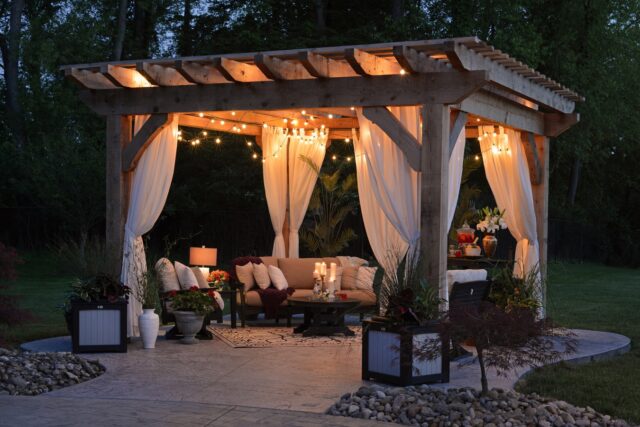
You normally have the option to select either cedar or another type of pressure-treated wood for a wooden pergola, which is sometimes mistaken for a gazebo. Softer woods are still more prone to these problems than cedar and other synthetic material possibilities, even though pressure treatment is employed to assist them resist rot, mold, and bugs.
While they do face a considerably higher risk of premature failure, wood pergolas can survive as long as vinyl or aluminum ones with good, routine maintenance. Because of this, pressure-treated wood ranks last on the list in terms of durability. But it’s also frequently the item with the lowest price, so your first outlay can be far less.
A cedar pergola not only offers a special visual aesthetic, it also delivers an alluring perfume as you take a breath of fresh air and relish your outdoor space. Cedar gives a new charm as a material for an outdoor living area not only because of its distinctive reddish hue but also because of the natural fragrance of the wood.
Compared to cedar, pressure-treated wood is more versatile since it may be painted or stained in a range of colors (which cannot be painted but must be stained periodically). Unless you are set on a specific color option or are seeking a lesser price point, cedar is the more popular option when comparing pressure-treated pergolas to cedar pergolas.
Vinyl Pergolas
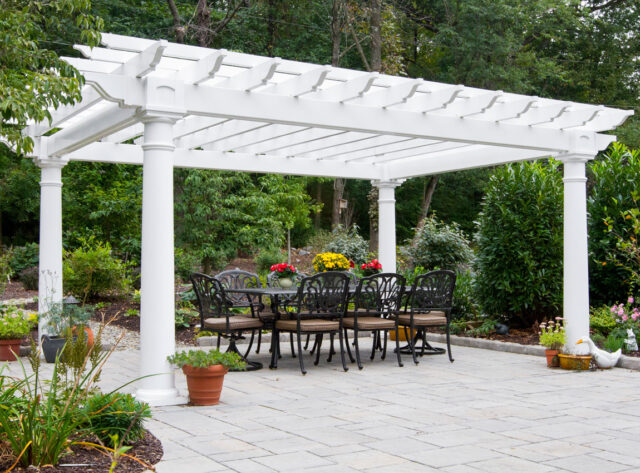
Compared to a wood pergola, a vinyl pergola requires far less maintenance; often, a yearly power wash is more than enough to maintain its color and beauty. However, if you reside in a region where there is a lot of snowfall, they might not be as durable as wood or aluminum when the snow weighs them down. They might also look more affordable than an aluminum pergola.
In contrast to natural or painted wood, they frequently come in brilliant white or beige tones and create a more formal appearance. It is feasible to paint the vinyl with acrylic paint to give it a more appealing hue if you are determined on a vinyl pergola for one reason or another but also want a more distinctive shade.
A professional, refined, and tidy appearance is provided by vinyl pergolas. In addition, vinyl requires almost no maintenance, as the majority of people are aware. For vinyl, you’ll need to undertake yearly to three-year power washings to get rid of any dirt, mold, grass, or other buildup that may appear, especially in humid locations. Besides that, vinyl is a material that readily lasts a lifetime.
Aluminum Pergolas
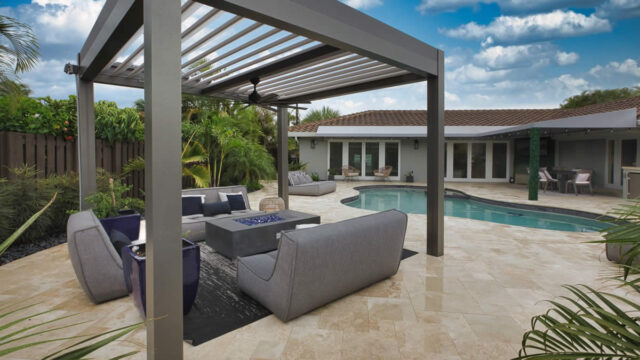
Outdoor aluminum pergolas are thought to be a fantastic addition to any building and may be used all year long, but are most commonly used in the summer. They are highly helpful because they provide protection from the sun, light, and rain during severe thunderstorms. Additionally, because aluminum pergolas include louver blades that are movable, you may flexibly control the sunlight with a remote.
A wood finish aluminum pergola with a strong metal frame may provide the durability of a wooden structure with simple elegance and full accessory customization. Your aluminum pergola will be guaranteed to survive through a lifespan of both rain and shine because it is also durable and practically maintenance-free. A pergola made of aluminum is what you should choose if you desire high quality.
Which Pergola is the Best?
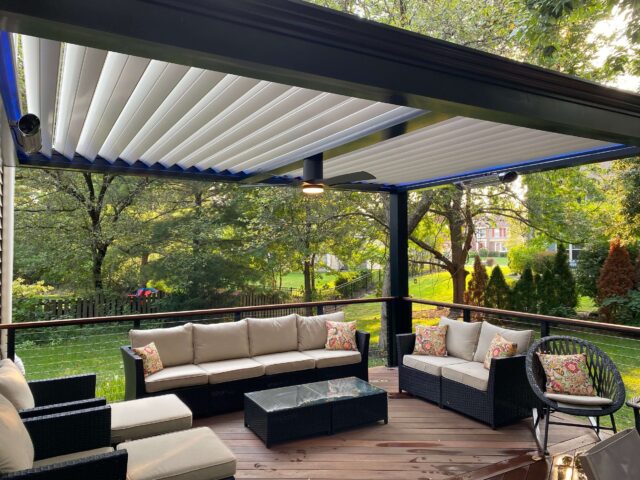
It is best to think outside the box when choosing the type of material that will be used to construct your pergola. How can you imagine the aesthetics of your current outdoor area being improved? Perhaps you have a specific color or a trendy (or rustic) mood in mind. Perhaps you can even clearly picture the aroma of cedar approaching you.
It’s critical to see yourself using the area both for recreational purposes and for regular maintenance. Be as grounded in reality as you can. Even though you may have grand plans to spend a vacation every two years sanding and restraining your cherished wooden pergola, if your summer schedule is frequently busy and jam-packed, you may find yourself skipping this important maintenance that could significantly reduce the longevity of your investment.
You would be better off choosing vinyl or aluminum if you prefer a quick pressure wash every now and then. Aluminum pergolas are perfect for you if you’re seeking high quality and something more upscale that you can completely design.









